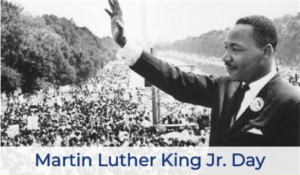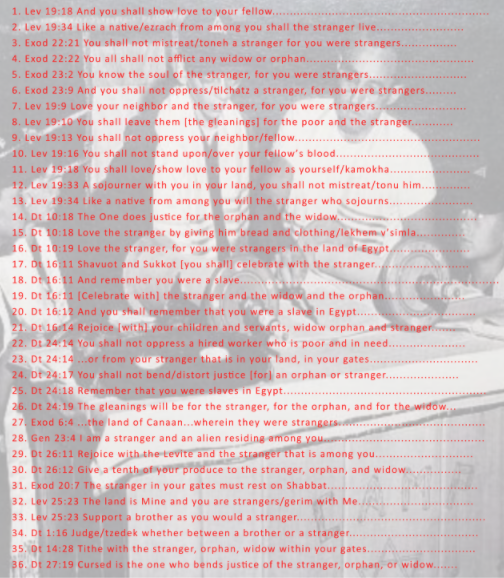Latest News from the Social Action Committee:
https://youtube.com/playlist?list=PLz0pFaiK377_579DB3DZFoWEtpXm-aPEi&si=Pgs3zjJ1HM2MyWrX
Social Action Committee Mission Statement
Tzedek, tzedek tirdof צדק צדק תרדוף is a command, ‘Justice, justice, you will pursue.’ The mission of The Jewish Center’s Social Action Committee is to provide specific and substantive ways to fulfill justice and do the work of tikkun olam. Committee members bring their passion, knowledge, and engagement with the community-at-large to The Jewish Center, leading food and blood drives, workshops to examine racism, a thriving garden, and more. If you are interested in joining us, please email Jenny and Dana at socialaction@thejewishcenter.org.
The Committee is currently comprised of a number of eager volunteers, including representatives from Homefront, Housing Initiatives of Princeton, Jewish Family and Children’s Services, Interfaith Refugee Resettlement Committee, Not-In-Our-Town Princeton, NJ Jewish News, Princeton Community Housing, Princeton Human Services Commission, Princeton Environmental Commission, Send Hunger Packing – Princeton, Send Hunger Packing – West Windsor/Plainsboro, and Sustainable Princeton.
Over the past year, the committee’s efforts have included:
- Leading food drives for the Jewish Family Service of Central NJ and ArmInArm
- Supporting The Jewish Center’s Interfaith Refugee Resettlement Committee
- Planting a rainbow flag in our lobby to ensure everyone feels welcome
- Sponsoring a George Floyd program and several Examining Racism workshops by Not-In-Our-Town Princeton
- Developing a comprehensive Social Action Handbook for TJC students and the community-at-large
- Maintaining a thriving garden, which allows donation to local food pantries
Please join us and help us expand our efforts!
Social Action Committee Imperatives Handbook
The Social Action Committee’s COVID-19 project was to create an Imperatives handbook with 10 topics of focus. These represent the activities of the committee members over the past few or more years: Welcoming Refugees, Multifaith Activities, Promoting Sustainability, Gun Control, Criminal Justice Reform, Providing Shelter, LGBTQ+ Rights, Preventing Food Insecurity, Addressing Poverty, and Confronting Racism. Each of the 10 units provides a background, what is being done, what needs to be done, and most importantly, a list of what we and others are now doing in Princeton and surrounding communities. There are also accompanying modules for educators to use as well.
Committee member Bob Karp has edited and produced this material into an incredible resource for our congregation. Each of the units has one or two Social Action Committee members listed as contact persons. Our emails are listed in the Table of Contents. We welcome additional ideas for our committee to focus on and welcome new members. Please feel free to contact us for more information!
Click on the image at right to download or read the full PDF.
Shavua Tov – Have a Good Week! Below are resources to follow up from this Shabbat’s program on racism in honor of Reverend Dr. Martin Luther King Jr. weekend. These resources were compiled by TJC congregants who have met in small study groups for a year and a half and have studied and explored the topic of racism. Please find reflections on their readings, an annotated booklist, and steps to move forward in our quest towards a more just society below.
Thank you to the dedicated members of our Hevruta Racism Reading Group: including Michele Alperin, Eliot and Marsha Freeman, Lew Gantwerk, Melissa Hager, Susan Kanter, Bob Karp, Pegi Lindsley, Miki Mendelsohn, Linda Milstein, Linda Oppenheim, Alison Politziner, Ellen Pristach, Lori Simon, Debbi Dunn Solomon, and Wilma Solomon.
As Dr. King spoke so eloquently “with this faith we will be able to work together, pray together, struggle together… knowing that we all will be free one day.” On Saturday morning Jews around the world read the inspiring story of the Israelite slaves leaving Egypt. One lesson we learn from our history is to remember Egypt, to remember what it was like to be denied freedoms, and to thus work to do tikkun, fixing of our world.
Shavua Tov,
Rabbi Andrea Merow
Dana Molina & Jenny Ludmer, Co-Chairs, Social Action Committee
MLK Shabbat Service Booklet of Contributions from TJC Members
A note from Linda Oppenheim:
Martin Luther King Jr. ended an early sermon (July 26, 1953) with the words “Not environment; not heredity; but personal response is the final determining factor in our lives. And herein lies our area of responsibility.” On the weekend that celebrates his birth, nothing would honor the King legacy more than for each of us to take responsibility in our own lives to follow his example in battling racism and economic injustice. Here are specific ways to fulfill that responsibility:
- Inner work: education and introspection
• Learn how those of us who are white-identified benefit from systems that have impeded others. Click the link for the Annotated Book List above for suggested readings. Study by yourself or in a racial justice hevruta (race study group or partnership).
• Look at The Privilege Checklist developed by the Jewish Multiracial Network. How many statements apply to you?
• Attend the two-part workshop Examining Racism: Looking Inward First; contactLinda Oppenheim to enroll.
Interpersonal work: personal relationships
• Learn how to respond to racist statements. Take a look at this list for response ideas.
• Join one of the small discussion groups with members from The Jewish Center and a church in Trenton, that are now being formed through Bending the Moral Arc.
• Attend Not in Our Town Princeton’s monthly Continuing Conversations on Race and White Privilege (in partnership with the Princeton Public Library.)
Systemic and institutional work
• Look through The Imperatives of Social Justice handbook and get involved in tikkun olam work already underway at The Jewish Center.
• Is there social justice work missing from the handbook? Take the lead and Initiate a new project.
Questions? email linda.oppenheim@gmail.com


